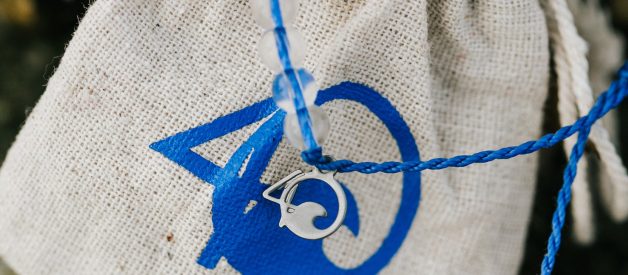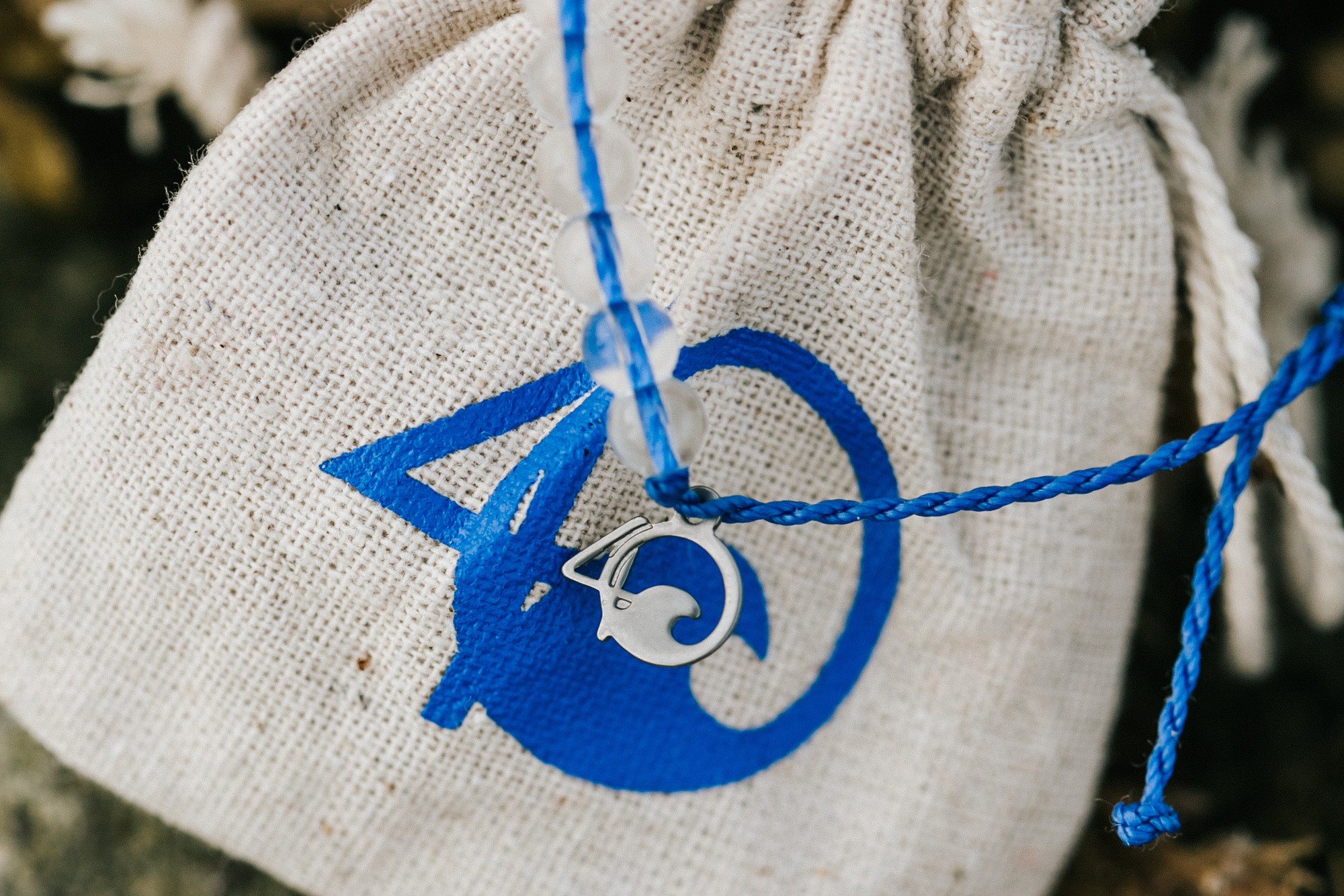 (Source: Wikimedia Commons)
(Source: Wikimedia Commons)
At some point they were everywhere. I?d see them on my social media timelines. I?d see them whenever I opened a YouTube video. I?d see them during breaks on TV. There was no escaping to the ads of 4Ocean, a Florida-based group that touts itself as a ?movement to end the ocean plastic crisis?[i].
As an avid surfer and scuba-diver, I love the ocean and am appalled by the millions of tons of plastic trash that pollutes the world?s oceans. Therefore, I was excited to learn more about the possibility to contribute to the cause of cleaning it up. A persuasive video explaining how ?one bracelet can save the ocean?[ii] drew me to their website. And while my heart guided me to their check-out page, my brain started to push back with questions. Does my purchase truly help to clean the ocean? If so, how much of my money is going to cleanups? How would I know for sure?
So I turned to the web, and after losing myself for hours in reading articles, reviews and interviews, it led me to draw the following conclusion with a fair degree of confidence:
4Ocean is an e-commerce corporation window dressed as a social cause, which uses aggressive marketing and fabricated credibility to dupe millions of people into thinking they are saving the oceans, while in fact they likely have little positive, and possibly even a negative effect on the oceans.
Let me explain.
4Ocean is 4Profit
Contrary to popular belief, 4Ocean is not a non-profit charity, but a for-profit corporation. This in itself is not bad, but it does mean that
1) 4Ocean is not obliged to spend the money it receives to address the plastic problem
2) As a privately-owned corporation, 4Ocean is not obliged to share any financial information with the public
It?s the divergence between this reality and people?s expectations where things start to get iffy.
While 4Ocean doesn?t explicitly state it?s a non-profit, the marketing language used makes it feel as if it is (at least it did for me). The ads and website invite you to ?join the movement?, while a recent 4Ocean blog said they want to ?educate viewers about the ocean plastic crisis and empower them to become part of the solution?[iii].
Reading through online reviews, it turned out I wasn?t the only one who was under the impression that 4ocean was a non-profit.
?I thought I was supporting a global nonprofit agency?, one disappointed customer wrote on BBB.org[iv]. ?I bought one of their bracelets and it fell apart in weeks. I also found out that they are NOT a charity. (?) 4Ocean mislead people into thinking they are charitable but they are a profitable business that tries very hard to look like a charity?, reads a review on Trustpilot.com[v]. ?Donated for 2 bracelets?, reads another. A customer called Jiri, from the Czech Republic, echoed my observation: ?This company try (sic) to look like a charity or organisation, it is not written anywhere but most of the people think they are charity or organisation because they act like that.?
In response to Jiri, 4Ocean wrote: ?We make no allusion to the fact that we?re a privately held company. We?ve never stated or implied in any way that we?re a charity.? Yet, in customer reviews where people are referring to their ?donation?, 4Ocean actively engages but almost never refutes that the purchase is not a donation[vi].
So why is 4Ocean for-profit? According to 4Ocean Founder Alex Schulze: ?When you look at a non-profit, or charity, we really didn?t want to go that route and ask with our hand out, rather create a product and a business solution so this can be around long after we are gone.?[vii].
Yet this is a misrepresentation of what a non-profit is or can do. 4Ocean could sell bracelets and other products to fund cleanup activities as a non-profit[viii]. The only difference would be that 4Ocean would have to re-invest all its revenues in the mission rather than giving it to its shareholders as profits, and would have to be transparent about where the money is going.
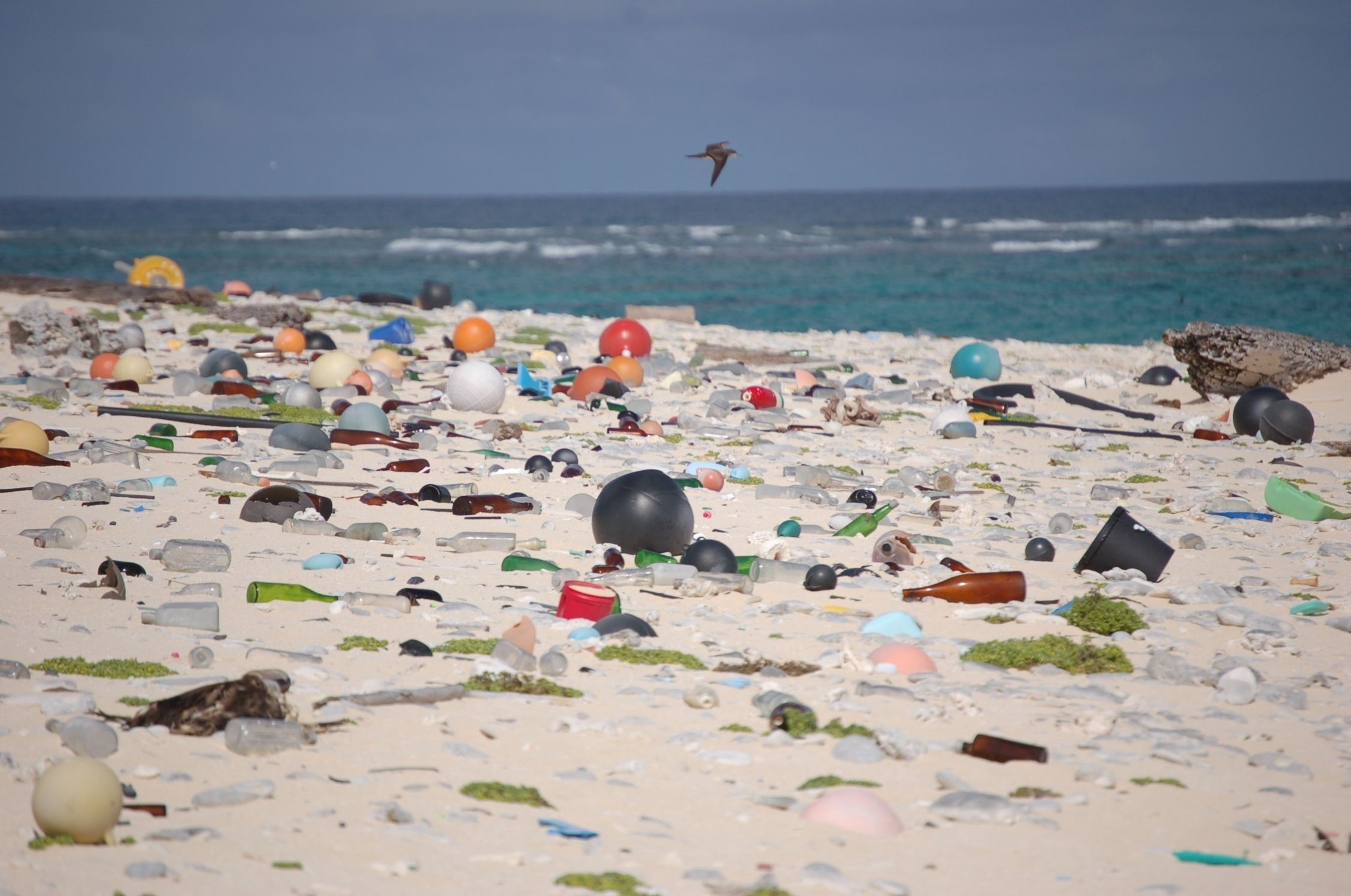 (Source: USFWS / Wikimedia Commons)
(Source: USFWS / Wikimedia Commons)
Crunching the numbers
So where is the money going? According to 4Ocean?s ads, ?Our bracelets are what exclusively fund all our cleanups around the world?[ix]. Read this carefully, and note they don?t claim that the bracelet sales exclusively fund their cleanups, but that the cleanups are solely funded by bracelet sales. In other words, this doesn?t give us any information on whether it?s 100% or 0.01% of the money going to removing plastic from the ocean. So, let?s do some math.
4Ocean sells its bracelets at $20 apiece, and with it they commit to cleaning 1 pound of trash from the ocean.
Firstly, the bracelet. Searching online, I track down the factory price of 4Ocean bracelets on Alibaba[x], who sell the bracelets for as low as $0.50 apiece[xi]. To be conservative, let?s round this up to $1 for every bracelet sold, which amounts to a 95% gross margin. Not bad.
Now, you might point out that the purpose of the bracelets is to fund the cleanup of the ocean, so having a large gross margin is a good thing. As one internet commentator wrote in defence of 4Ocean: ?WHO CARES if the 4-Oceans bracelets only cost a dollar to make..THAT IS WHY ITS (sic) CHARITY!!?[xii]. Yet again it?s important to point out that 4Ocean is not a charity, leaving the question how much of this 95% is going to its cleanup mission.
4Ocean employs paid trash collectors in Haiti, Bali and Florida, and has organized volunteer cleanup events on beaches in about two dozen countries[xiii]. According to a 2009 APAC report I found, cleanup costs range from $100 per metric ton for volunteers to an average of $1,500 per metric ton for paid beach cleaning in the Asia-Pacific region[xiv]. This would translate to $0.05 per pound of trash for volunteer cleanup expenditures, and $0.68 per pound for professional cleaning. As most professional 4Ocean cleaners are based in low-wage Indonesia and Haiti, this is likely a high estimate. How many bracelets would 4Ocean sell if the public knew only between 0.25% and 3% of their purchase would go to the cause of cleaning up plastic?
After being challenged on its use of free labor to collect trash, 4Ocean responded that the trash collected at these events does not count towards its pledge of removing one pound of trash per bracelet, and that because of this their trash tracker is ?ahead? of the amount of bracelets sold[xv]. But contradicting this, in a 2017 press release, 4Ocean boasts about having collected ?820,000lbs of trash from oceans and coastlines in 27 countries?[xvi], while 24 of those countries only saw one or more volunteer cleanups, suggesting volunteer collections are included.
After deducting cleanup and bracelet expenses, that leaves us with more than $18 unaccounted for. Organizational overheads may account for $1?2[xvii]. The packaging may cost another dollar. Then comes the advertising. ?I must have watched your ads about 250 times in the last month. If I had known that every dollar I paid for my bracelet would be used to show me ads and not be used like those ads actually say, I would have never sent any money to you.?, writes 4Ocean customer Shan David[xviii]. Business Insider recently reported 4Ocean is the world?s 14th-largest buyer of Facebook ads, having spent $3,654,791 on the platform between May 2018 and October 2019[xix]. Adding ad spending on other platforms like TV and Google, plus the production cost of its sleek videos, and it is not unreasonable to estimate 4Ocean spends about $5,000,000 on ads annually. Based on the sales estimate I used to calculate overheads before[xx], this translates to $2.50 per bracelet sold. This means 4Ocean appears to spend between 3.5x and 50x more of their customer?s money on ads than on cleanup.
Which leaves at least two thirds of the bracelet price in net profits. Is it perhaps going to the pockets of 4Ocean?s founders? In defense of a YouTuber wondering the same thing[xxi], 4Ocean responded that the 4Ocean founders, Andrew Cooper and Alex Schulze, have each only taken just 0.7% of revenue as salary[xxii]. But remember that 4Ocean is an LLC, meaning the founders own the corporation and its assets[xxiii], which could mean the company has many tens of million of dollars on its accounts, but simply hasn?t cashed out this money to its owners? private accounts yet.
Another possibility is that the founders/owners pay their personal expenses, like cars and other living expenses, as business expenses. Until 4Ocean gives its supporters full financial transparency (similar to how other ?social businesses? like Ecosia operate[xxiv]), it will simply be guesswork.
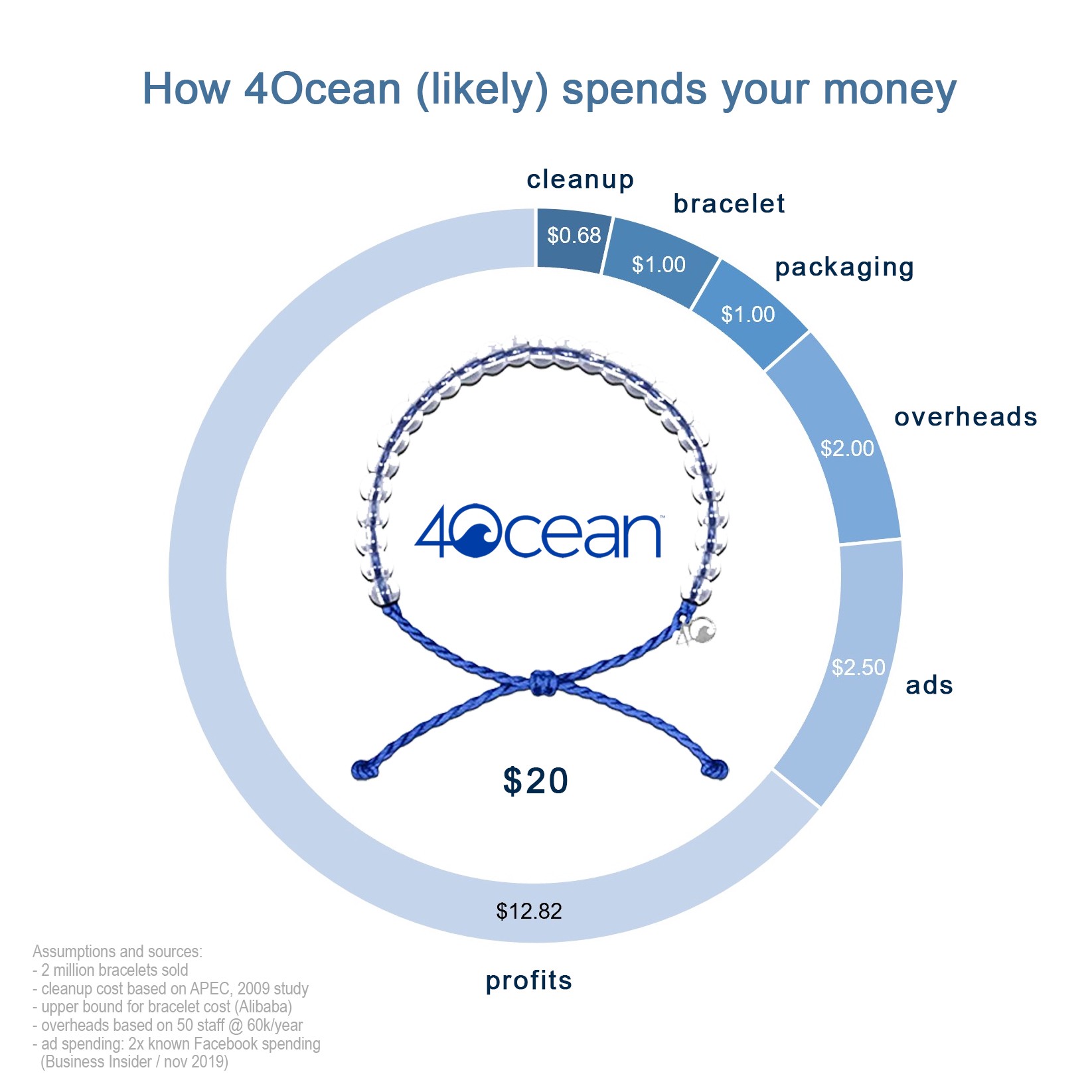
But at least they?re doing something good?
Even if only a minute amount of the bracelet proceeds is going to cleaning up trash from the ocean, one could still argue that this is fine, because they?re still solving the plastic problem. Remember, according to 4Ocean?s ads, ?this recycled bracelet is saving the ocean?[xxv].
On its website, 4Ocean claims to have collected more than 7 million lbs of trash since 2017. Compare this to the annual inflow of 8 million tons of new plastic[xxvi], and it turns out 4Ocean is addressing about 0.01% of the annual increase of plastic flowing into the ocean. 4Ocean would have to sell all the world?s 7.6 billion people more than 2 bracelets per year just to keep up with this increase of plastic flowing in the ocean. Claiming that the bracelets sales will save the ocean is overpromising to say the least.
Still, you might say, this is about 0.01% more than most people are removing from the ocean. But how sure can we be that the 7-million-pound-figure is accurate? And how much of this weight is plastic, versus other debris, sand and water that comes with the trash?
And perhaps the most important question: how much of this amount has actually been pulled out of the ocean? Surprisingly, 4Ocean?s legal disclaimer page reads: ?Some of the trash that we have removed as part of the 4ocean one pound pledge may have been removed from the ocean or a coastline.?[xxvii] Some? May have been? Here, 4Ocean admits part of the trash it promises customers to take out of the ocean is not taken from the ocean at all. But wasn?t that the core value proposition 4Ocean uses to attract its customers?
On trustpilot, a reviewer named Allen Castro writes: ?I have actually been on one of there (sic) beach cleans and the trash they picked up was not from the sea or beach but from the car park and its surrounding area. While I think this is great, the way they portrayed the trash was to bring it down to the beach and tip it out. This is total misrepresentation just trying to con people into thinking all the trash came from the beach.? 4Ocean responded to this review, but did not refute this key point.[xxviii]
An account from a former 4Ocean Fleet Operations Manager describes how perverse incentives might contribute to cheating:
?They are obsessed with using weight as the metric for how much trash they get. The often have competitions between the various boat crews to encourage them to collect as much trash as possible. They offer inducements such as $50-$100 Amazon gift cards, banal to crews who can barely pay their bills with the pittance they receive. Ironically, then, they claim that plastic is what is harming the environment the most (and they?re correct on that count), but ignore the fact plastic weighs so little.
The result of this is that many crews find dumpsters on land out of which they pull trash and bring to the dock on the boats claiming that they got it from the water or riverbank. They haven?t. There is video of crews who have gone ?dumpster diving? to collect trash. There are so many items that have been photographed that couldn?t have possibly have floated to where they were found- church pews, BBQ grills, steel tables & chairs, etc. Some of these items don?t even have water stains on them! They should hope that those videos and photographs don?t end up on the many social media sites on which 4Ocean is so ubiquitous.?[xxix]
4Ocean?s claim to legitimacy is the Better Business Bureau (BBB), an organization which rates companies on ?trustworthiness? in return for an annual fee[xxx]. According to 4Ocean, the ?4ocean TrashTracker? is audited and verified by the BBB quarterly?. While the BBB claim is meant to give credibility, it unfortunately only leaves us with more questions. How can BBB check whether the trash numbers supplied actually represent trash collected from the ocean? What is the audit process like? What standards are followed? On the BBB website, not a single word can be found about BBB auditing 4Ocean?s catch. 4Ocean doesn?t share any specifics on the process either.
Then there is the question about the sourcing of the plastic. According to 4Ocean?s TV ad, the bracelets are made from ?our ocean plastic?. Unfortunately no information on how 4Ocean repurposes ocean plastic into bracelets could be found anywhere. On Trustpilot, multiple people point out they?ve requested information on how they recycle trash into bracelets, to no avail[xxxi]. 4Ocean boasts being ?GreenCircle certified? as well as following the ?Global Recycled Standard?, yet these certifications are voluntary guidelines on recycled content, giving no information on the source of the material used for the bracelets[xxxii].
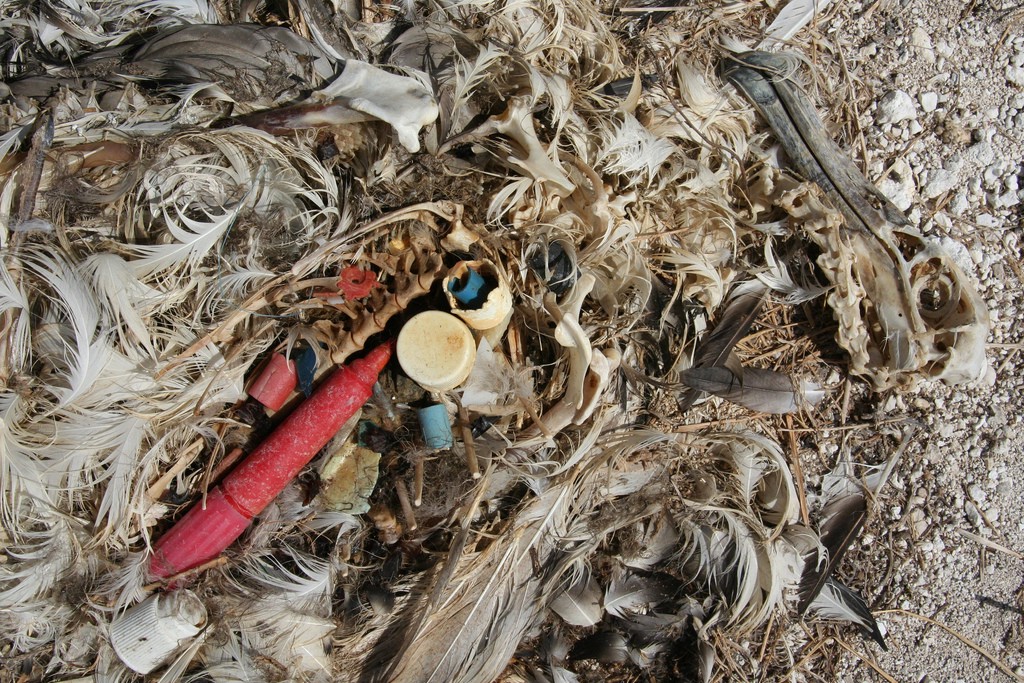 Plastic trash inside an albatross carcass (Source: USFWS / Wikimedia Commons)
Plastic trash inside an albatross carcass (Source: USFWS / Wikimedia Commons)
Keeping up appearances
With so many questions surrounding 4Ocean?s claims and intentions, one might wonder how 4Ocean has been able to avoid scrutiny for so long. The answer appears to lie with 4Ocean?s active attempts to fabricate a veneer of credibility around its work, while censoring anyone who dares to question it.
On Glassdoor, a string of mostly negative reviews is broken in early 2019, when reviews suddenly turn extremely positive. A recent post by an anonymous former employee explains: ?Most of the reviews from March-May were from employees urged by the management team to write embellished and positive reviews to really sell how great 4ocean is.?[xxxiii]
What about the non-profits including Ocean Conservancy and the Oceanic Preservation Society, who have endorsed the work of 4Ocean? Look at the fine print[xxxiv] at the end of these endorsement videos, and you?ll see that these endorsements are actually in return for a one-time $25,000 donation to these causes; a sizable donation for an NGO, but pocket money for 4Ocean. While these words of praise contribute to 4Ocean?s credible appearance, they are nothing more than paid endorsements.
Until recently, the first thing one encountered when visiting the 4Ocean website were impressive drone shots of a large 4Ocean-branded vessel, dubbed the Ocean Plastic Recovery Vessel (OPR). Launched in November 2018, and 4Ocean claimed ?it will end 90% of the world?s plastic pollution forever?[xxxv]. But as others have pointed out, to date 4Ocean hasn?t shared any footage of the vessel cleaning up any plastic.
In response to others pointing this out, 4Ocean stated in July 2019 that ?it?s not ready yet?. But this fact did not stop 4Ocean from using the vessel as evidence for 4Ocean?s cleanup efficacy. In February 2019, 4Ocean responded on a critical comment on Trustpilot by saying ?All told we have over 20 vessels on the water, including our new 135 foot Ocean Plastic Recovery vessel which is a retrofitted oil barge which will enable us to pull additional millions of lbs from the ocean this year?. 4Ocean hasn?t shared details on how it believes the OPR will end 90% of plastic pollution, as it claimed in its promotional video[xxxvi], which has since been taken down.
A fair number of people have asked 4Ocean via email to clarify how the money it receives is spent. As far as I could find, 4Ocean hasn?t answered any of these queries. Trustpilot reviews explain: ?When contacted they decline to advise what % of their funding goes to the cause? and ?the owners only responded with information about employees and other gross expenses. They ignored my request for information about their ?profits??.
On social media, rather than dodging the question, 4Ocean appear to follow a different strategy. ?I have followed this company for over a year, at least up until the blocked me on social media?, reads one review. ?I was banned on Social Media as well and they have removed my comments too?, Rez Ramiri writes on Trustpilot. On the same website, Allen Castro writes: ?I have a lot of friends who have asked the same question on there (sic) facebook page. I have had no answer back and now I am banned from commenting on there (sic) facebook page, also the same goes for my friends. Plus our comments have been removed from there (sic) page?.
O Sanchez writes on Trustpilot: ?when I say to them that $20 for 20 pounds of trash was too much since people here in the states that are working minimum wages ($8.50/hour) will collect 50 or more pounds of trash in one hour, they did not allow me to publish my review?. In response, 4Ocean replied ?The reviews on our site are moderated by a third party. We in no way control the content that is published.? Still, if a third party indeed executes their community management, wouldn?t it still be 4Ocean deciding on the policy on which this third party executes?
Office dramas
While things don?t sound great from the outside, it doesn?t appear to be much better from the inside. On Glassdoor, current and former employees describe 4Ocean as a ?marketing company? with a ?superficial and dishonest culture? that is ?run by ex-corporate vultures?. Multiple people lament the ?Discriminatory work environment where heavy set employees asked to be reassigned days photo shoots occuring (sic)?[xxxvii].
Another review reads: ?They even asked one of the mates on one of the other boats (a bigger girl) to be elsewhere from her normal duties twice when cameras were present. When she confronted her supervisor about it she was told that the ?orders? for specifically her to be somewhere else came down directly from headquarters. When she was told that the photographers requested her to be elsewhere, the photographers denied that they made this request, all of this is in text or email. Evidentially she didn?t fit their self-prescribed image for what their workers should look like. This mate is now likely to pursue a discrimination case against them. (?) It?s unfortunate that the resources they could be using to actually clean the ocean will now have to be redirected to defend against the several discrimination lawsuits headed their way.?[xxxviii]
Zooming out
In summary, based on the available information, it appears that only a fraction of the money 4Ocean receives goes to cleanup, their claimed impact on the plastic problem is heavily inflated, the products are not made from ocean plastic and 4ocean is doing everything in its power to prevent you from knowing this.
Rather than using a business model to drive the cause of cleaning the ocean, 4Ocean appears to use the cause of cleaning the ocean to drive a business model.
As an anonymous employee on Glassdoor summarized: ?This is a PR company, not a ?save the ocean? company?, while another labelled it a ?marketing company?.[xxxix]
Are 4Ocean?s practices legal? That?s a question I cannot answer, as I have no legal background, so cannot evaluate what constitutes false advertising.
What I can make, however, is a moral assessment.
On Trustpilot, Kate Schmelka writes: ?I?m still wondering what percentage of the NET goes to the owners versus the cause. This is very important information when deciding about charitable giving. My girls are having lemonade stands to support 4Ocean, and I hope they are actually supporting cleaning the ocean and expanding the reach, not enriching the owners.?[xl]
Is it ok to make these children believe they are helping to clean the ocean, while in reality most of the money they raise goes to ads and two businessmen? If 4Ocean?s ?TrashTracker? figure is at least somewhat representative of the number of bracelets sold, 4Ocean has potentially received $150 million to date; a vast resource that could have been spent on NGOs that are actually working to solve this problem. Furthermore, once the inevitable happens and the truth about 4Ocean comes out, what negative effect will this breach of people?s trust have on the wider cause?
Solution
Based on my research, I believe it is valid to have serious doubts about 4Ocean?s intentions, yet, due to a general lack of information, this is not something that can be proven with certainty. But shouldn?t the burden of proof be with the corporation making the claims, rather than with the consumer?
I would be very happy to change my mind if 4Ocean would support its claims by giving real transparency into their finances and publishing verifiable records of their trash collection.
As, according to 4Ocean?s website, ?be transparent? is one of the corporation?s core values, this shouldn?t be too big of an ask?
[i] Quote from the 4Ocean.com homepage
[ii] Video: https://www.youtube.com/watch?v=pK4oglEvgT8
[iii] Source: https://4ocean.com/BreakawayFromPlastic/
[iv] Source: https://www.bbb.org/us/fl/boca-raton/profile/garbage-removal/4-ocean-llc-0633-90353459/customer-reviews
[v] Source: https://trustpilot.com/reviews/5bf9bfa89d37800728c1c6f7
[vi] On Trustpilot, the word ?donate? or ?donation? is mentioned 60 times; 4Ocean challenged this description of the financial transaction only once.
[vii] Source: https://news.wjct.org/post/south-florida-company-wants-clean-seas-and-prove-it-can-make-money-doing-it
[viii] Source: http://www.spzlegal.com/nonprofit/can-nonprofits-sell-products/
[ix] Source: https://www.youtube.com/watch?v=sZxqUnVpeA4
[x] 4Ocean bracelets on Alibaba: https://www.alibaba.com/product-detail/4Ocean-Bracelet_62001824583.html?spm=a2700.galleryofferlist.0.0.4f433bfbO5v4w3
[xi] 4Ocean claims Balinese ?artisans? produce the bracelets. While this may be true for some bracelets, one account suggests at least some of the bracelets are made in China: ?I just left Bali, where I work in the export industry. I saw a 4Ocean box in my cargo company?s warehouse. What a i found interesting is that the box was from China, and it said that $23,000 of bracelets were inside. What this means is 4Ocean is manufacturing bracelets in China, not Bali, shipping them to Bali and then shipping them to the US. Why would 4Ocean willingly pay for all this extra shipping? So they can say the bracelets come from Bali.? (Source: katie 143 on Agnostic.com). In any case, considering Indonesia?s low labor costs, this wouldn?t materially change the cost of goods sold.
[xii] Source: https://agnostic.com/post/276569/internet-advertising-scam-warning-do-not-purchase-4ocean-bracelets-it-is-a-scam-they-do-littl
[xiii] Source: www.4Ocean.com
[xiv] Source: http://publications.apec.org/-/media/APEC/Publications/2009/4/Understanding-the-Economic-Benefits-and-Costs-of-Controlling-Marine-Debris-In-the-APEC-Region/09_mrc_MarineDebris_r.pdf
[xv] Source: https://www.youtube.com/watch?v=EuRxbtfNdc8
[xvi] Source: https://www.trustpilot.com/reviews/5b249fce6d33bc0680398a43
[xvii] Assuming 50 staff @ 60k USD cost pp and 2 million annual bracelet sales, an estimate based on their trash tracker.
[xviii] Source: https://trustpilot.com/reviews/5c7aea1c97afa10630af9e5a
[xix] Source: https://www.businessinsider.com/trump-other-advertisers-spending-most-on-facebook-political-ads-2019-11?r=US&IR=T
[xx] Assuming 2 million bracelets sold annually
[xxi] Source: https://www.youtube.com/watch?v=EuRxbtfNdc8
[xxii] This was the first and only time 4Ocean shared any financial information. Tellingly, in previous negative reviews, 4Ocean addresses all criticism point-by-point except for the financial ones.
[xxiii] As Cooper says 4Ocean has never taken outside investment (source: https://fortlauderdalemagazine.com/oceans-4-ever/), 4Ocean is fully owned by Cooper and Schulze.
[xxiv] See: https://blog.ecosia.org/ecosia-financial-reports-tree-planting-receipts/
[xxv] According to this 4Ocean ad: https://www.youtube.com/watch?v=r1tkW3IHC7E
[xxvi] According to a study published in Science in 2015: https://science.sciencemag.org/content/347/6223/768
[xxvii] https://4ocean.com/disclaimer/
[xxviii] Source: https://trustpilot.com/reviews/5c1cfe639d37800a10554c76
[xxix] Source: https://www.indeed.com/cmp/4ocean/reviews?id=8b54bf3c58495426
[xxx] More information on BBB: https://www.bbb.org/bbb-accreditation-standards
[xxxi] L Jewett writes on Trustpilot: ?I have asked some probing questions through the Contact Us section of website. They provided a very prompt answer but it actually didn?t answer my questions which have to do with HOW the recovered plastics are actually converted into the bracelets. I tried again but haven?t received any additional answers. Which ocean debris plastics can they use for the bracelets?? Rez Ramiri writes: ?A scam. Even after multiple requests, they won?t produce valid, traceable proof in writing that the bracelets are made from recycled plastic.?
[xxxii] Source: http://database.greencirclecertified.com/database/uploads/pdf/4Ocean+-+18-0274-7vm.pdf
[xxxiii] Source: https://www.glassdoor.com/Reviews/Employee-Review-4Ocean-RVW28334294.htm
[xxxiv] See for example this video featuring Nick Mallos of Ocean Conservancy: https://www.youtube.com/watch?v=fTfxDgOvphw
[xxxv] Source: https://youtu.be/sZxqUnVpeA4?t=608
[xxxvi] Source: https://www.youtube.com/watch?v=sZxqUnVpeA4
[xxxvii] Source: https://www.glassdoor.com/Reviews/Employee-Review-4Ocean-RVW30346341.htm
[xxxviii] Source: https://www.indeed.com/cmp/4ocean/reviews?fcountry=ALL
[xxxix] Source: https://www.glassdoor.com/Reviews/4Ocean-Reviews-E1888592_P2.htm
[xl] Source: https://www.trustpilot.com/reviews/5d1cc8da42fa560900506ebd
